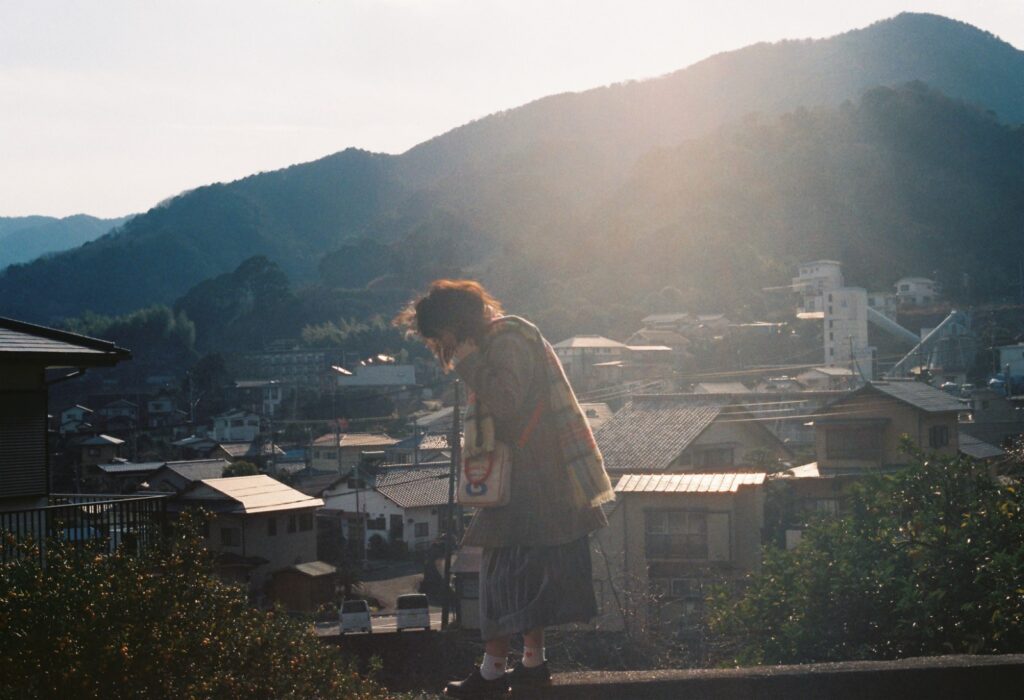Perhaps you happened to notice that film photography is back to trend now. Why film photography? Isn’t that something your parents used to record their wedding or the first day you go to school? Hey, you just got the point. One reason I shoot with film cameras is because of their nostalgic feeling. Manually setting the exposure, turning the focus wheel until things get clear in the finder, clicking on the metal shutter, with a clear shutter sound, one critical moment out of the ever-flowing river of time has just been captured. I am addicted to filming in film. If you are not addicted yet, here are some reasons why you should.
I think digital cameras have provided too many options and functions. White balance, ISO, color filters, burst shot, WIFI sharing, stabilizer… You can spend half an hour figuring out the best setting on their touchscreens. On the contrary, on film cameras, you just have to worry about the composition and exposure. Even it’s a fully manual one, there are only three places for you to manually set: the shutter speed, the aperture, and the focus wheel. Admittedly this leads to many limitations. Actually, every roll of film I took comes with some technical issues: some photos are out of focus and some are shaky. But isn’t that what makes me the photographer? If all I do is taking care of the camera settings and let the camera handle the situation, then shouldn’t I give credits to my camera to be the photographer?

I have to admit that film cameras can never produce high definition photos as digital cameras do. But fortunately, in terms of outcome qualities, film cameras do perform better in one critical area —- the latitude of exposure. Every time you take a picture, you have to make the hard decision on whether to keep the bright part or the dark part at the right exposure. If you shoot something towards the sun, you will either make the subject too dark or the surroundings too bright. However, cameras with a higher latitude of exposure can tolerant more difference on lighting, keeping both the bright parts and the dark parts at the right exposure. Since the optical properties of the chemicals on film perform better than the electronic sensors, film cameras naturally come with a higher latitude of exposure. This not only means you can shoot beautiful backlighting photos but also means the photos you take with film come with more layers of lighting, making it much more cinematic. This comes with a plus: if you forget to set the exposure right, the film still captures most information for future adjustment.

If you have already started to learn about film photography, you might be confused by the various types of film cameras: single-lens reflex (SLR) cameras, rangefinder cameras, point and shoot cameras, disposable cameras… (Stay tuned for my next blog on how to pick your film camera!) However, one feature all those cameras share is that they all use film rolls to record photos, meaning that you have to use up the whole roll of film (usually comes with 24 or 36 shots), develop the film, print or scan your negatives (when the film is developed, it is called a negative) before you can actually see your outcomes. Now, this seems to be troublesome, but this is exactly the beauty of film photography to me: you have to wait. Sometimes I forget what I have shot until the film finally got developed after months. Photos from months ago feel like a frozen specimen of time. This never fails to surprise me.

To me, the fun of film photography is in the process: using cameras produced decades ago, adjusting only the critical settings, waiting, and getting surprised by the final outcomes. Since I can’t review photos instantly, I can’t guarantee the quality of the photos I shot. Therefore, I rarely use film cameras for serious photography works. But if you have taken photos for so many years that you have forgotten the fun of photography, trust me, film cameras are guaranteed to make you feel in love with taking photos again.